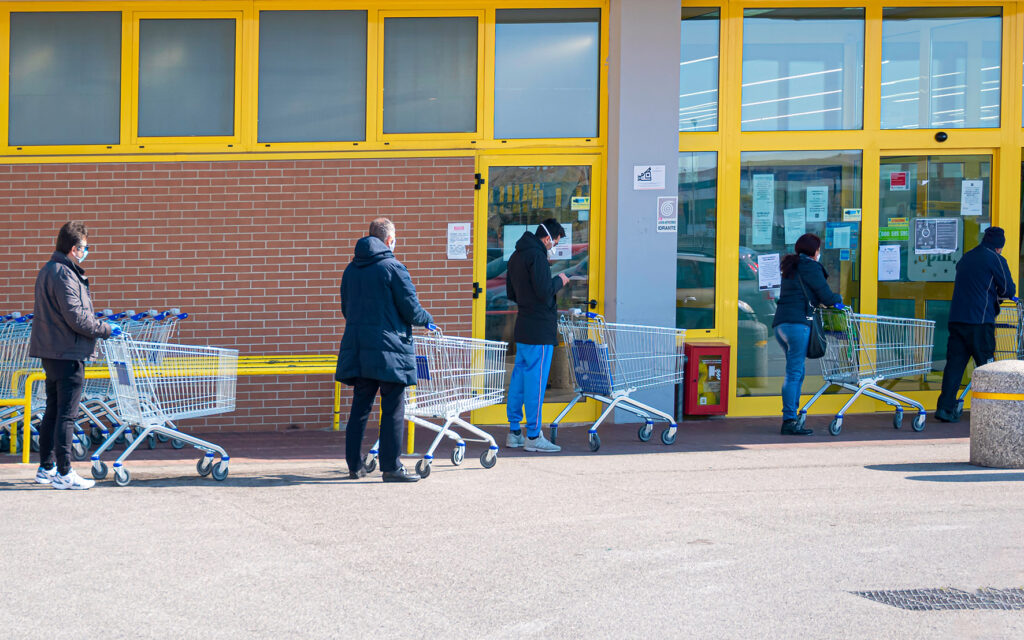Breaking the breadline: The Church’s response to food poverty in the UK
Breaking the breadline:
The Church’s response to food poverty in the UK
The English footballer Marcus Rashford’s national effort to provide free meals to vulnerable children during COVID-19 has received strong support from local communities. A key source of this support is the country’s local churches and Christian charities. This support highlights a longstanding commitment of religious institutions in the UK to end food poverty.
Half-term hunger
Food poverty has become an undeniable global reality. This reality was dramatically highlighted when The World Food Programme (WFP) was awarded the 2020 Nobel Peace Prize, with the Norwegian Nobel Committee significantly tying hunger with conflict, and how food can be a means to prevent wider social unrest.[1] During the coronavirus pandemic, food poverty hit Europe most visibly in the UK, where Manchester United and England forward Marcus Rashford led national efforts to secure free meals for vulnerable children during the pandemic. Despite being publicly recognised for his efforts by the Queen – receiving an MBE – Rashford’s high-profile campaign was unable to persuade the government to continue to provide free school meals to children after the summer break.[2] Fears peaked over whether children would go through half-term hunger during the winter. Among the chorus of protests against the government’s decision to support free meals were church leaders. The Archbishop of Canterbury, for example, declared: “Our schools and parishes are stepping in to help disadvantaged children across England. Churches across England will be providing free meals to children during the half-term holiday.”[3]
‘A Godsend’
Rashford, who himself lived on a food voucher scheme as a child, did not stop his efforts. He mobilised a group of supermarkets, businesses and charities – including Aldi, Asda, Co-op, Deliveroo, FareShare, Food Foundation, Iceland, Kellogg’s, Lidl, Sainsbury’s, Tesco and Waitrose – to form a task force to overcome the half-term hunger challenge.[4] Churches and Christian charities also continued their support of Rashford’s efforts. Two local churches, for example, hung crisps across their pews and gathered contributions for the cause championed by footballer and campaigner Marcus Rashford. “It’s a visual reminder for our congregations as well as for visitors to do their bit and donate.”[5] Another local church has opened noon every day during half term, to give food out to families needing support. Rev Danny Reed said: “So the government won’t help children in need to get meal vouchers during the school holiday. Please spread the word to all who may be in need.”[6]
A crucial recognition among these religious institutions is that while the government should have voted to extend free school meals, this would have only been a temporary dent to what has become an enduring problem: a “sticking-plaster solution to a longer-term and deeper problem” as the Bishop of Durham, the Rt Revd Paul Butler described it.[7] For Revd Butler, the real solution was two-fold: the “heart-warming and encouraging” rallying of churches, businesses, charities, and individuals to support disadvantaged children, and active advocacy for significant “long-term government action,” not simply emergency action.[8]
New boundaries?
While churches and Christian charities – such as The Baptist Union of Great Britain, the Methodist Church, the United Reformed Church, and Church Action on Poverty – have led independent efforts in the past to address the growing food poverty crisis[9], the shift towards an advocacy movement to reform government policy and work more closely with the government on food poverty is a new development. Rashford’s activism has been instrumental in making this shift possible. But the shift also suggests, even if not conclusively, that religious institutions assume a greater role than they did before in the UK. Jonathan Benthal, former Director of the Royal Anthropological Institute and the author of Returning to Religion: Why a Secular Age is Haunted argues that western liberal societies are involving religion more and more in humanitarianism, environmentalism, and animal rights.[10] Religion is not only still around but arguably creating new frontiers of action. The strong involvement of churches and Christian charities in the Rashford case only confirm this new role emerging between religion and society.
Would you like to learn more about similar topics? Go to www.earsdashboard.com and read more.
[1] The Nobel Peace Prize 2020 – Press release – NobelPrize.org
[2] Marcus Rashford vows to keep up free meals fight after No 10 refusal
[3] Prioritise children to end hunger and poverty, Bishop of Durham urges after school-meals outcry
[4] Marcus Rashford brings food brand giants together to tackle child food poverty
[5] Churches bag crisps to join local eateries backing Marcus Rashford’s campaign
[6] Places in Cornwall giving free meals in Marcus Rashford campaign
[7] Places in Cornwall giving free meals in Marcus Rashford campaign
[8] Prioritise children to end hunger and poverty, Bishop of Durham urges after school-meals outcry
[9] Churches challenge food poverty with latest resource on foodbanks
[10] Jonathan Benthal: Returning to Religion: Why a Secular Age iIs Haunted by Faith, 15 May 2018






